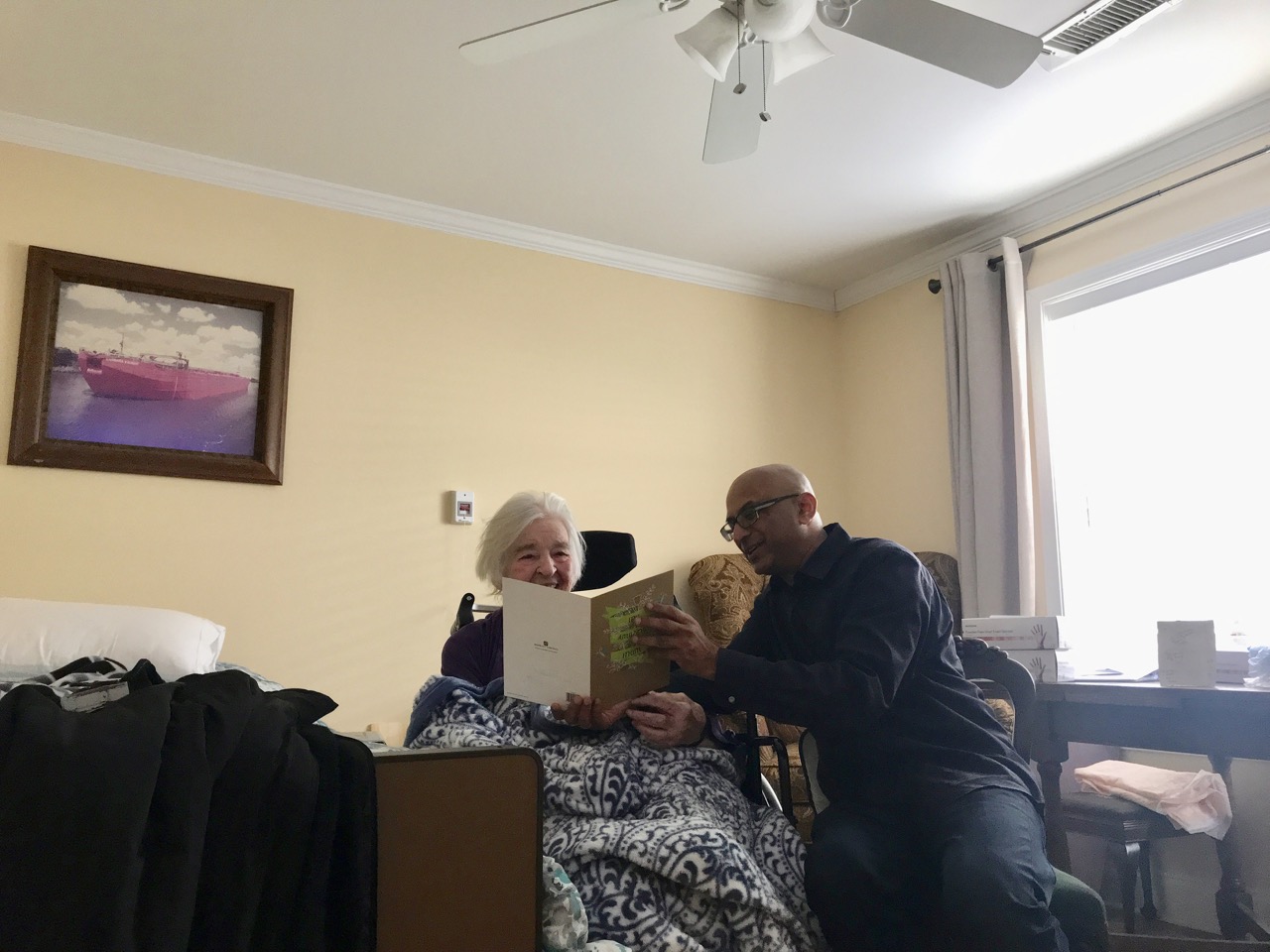She gave me something to think about… What do you think?
Last week, I spent some time with one of my favorite friends in one of the hospice centers – let’s call her Mrs. Nancy. I walked into her room and was not sure she would have remembered me.
“Mrs. Nancy. Remember me?”
“Of course. You went to India to see your dad.”
That was surprising. In fact how our whole brain works or sometimes chooses not to work still is an enigma to me. Both Mrs. Nancy and my dad can remember certain things so well and then there are obvious things that we have to keep repeating to them!
“So, how is he doing?”
“Thank you Mrs. Nancy. He actually has had a surprisingly good progress. That was very encouraging”.
“That is good”.
“Indeed. Looks like I missed your birthday when I was gone.” I had noticed a few cards over her table.
She kept looking at me. I was not sure I had a grip over the whole situation. So I asked:
“When is your birthday?
“Jan 19th”, she said after a quick thought.
“Jan 19th? I see. Let’s see… that was… that was… wait a minute. Today is Jan 19th! Is it your birthday today?”
“I do not know”
I opened up a couple of cards and sure enough – one stated Jan 19th.
“Happy Birthday! It is your birthday today!!”, I yelled.
I was not too sure why I was yelling. I was inexplicably excited.
“Have you read the cards? Did somebody read them to you?”
“I do not remember”
“Well, that is what we are going to do now then”.
As you see in the picture, I held the cards very close to her and slowly read them out. The particularly favorite one for me was the one from her son and daughter-in-law who wrote a very touching card, I thought. In fact, I read it out a couple of times for her. (The picture is of that card).
I did not realize it then, but the picture has partially caught that incredible smile that can come only from a blissful pride in your child.
Later, when we were done, I packed up the cards and then settled down in my chair.
Suddenly, she remembered my dad again. She can’t remember her own birthday but she remembered a person she had only heard about a couple of times. Go figure!
“Do you write to your dad?”
Whoa! I am reasonably fast on my feet – even if I say so. But that one stumped me.
“No”, I stammered… Too many things were swirling in my mind – the two weeks it takes for a letter to go from Atlanta to Kalyani. The missed mails. etc. But I soldiered on – “I call my parents up everyday”. I omitted the part that should have clarified “parents” mean “mom”. My dad can’t hear anything on a phone.
She nodded. I figured I had made peace with her.
Till she came up with the words that has been ringing in my ears – “Sometimes you should write him a card. He can read that over and over again”.
I must have stared at her for a few good seconds.
That is true. Phone calls are one and done. Cards and letters are forever. I know how much I cherish the letters that I have saved from my childhood. And how much I regret not saving more of them.
She might have just pushed me to write to my dad. Maybe a letter every other week? What do you think? Should I do it?
Would you do it for your dad or mom? Do physical pieces of memory transcend ephemeral ones like phone calls?
